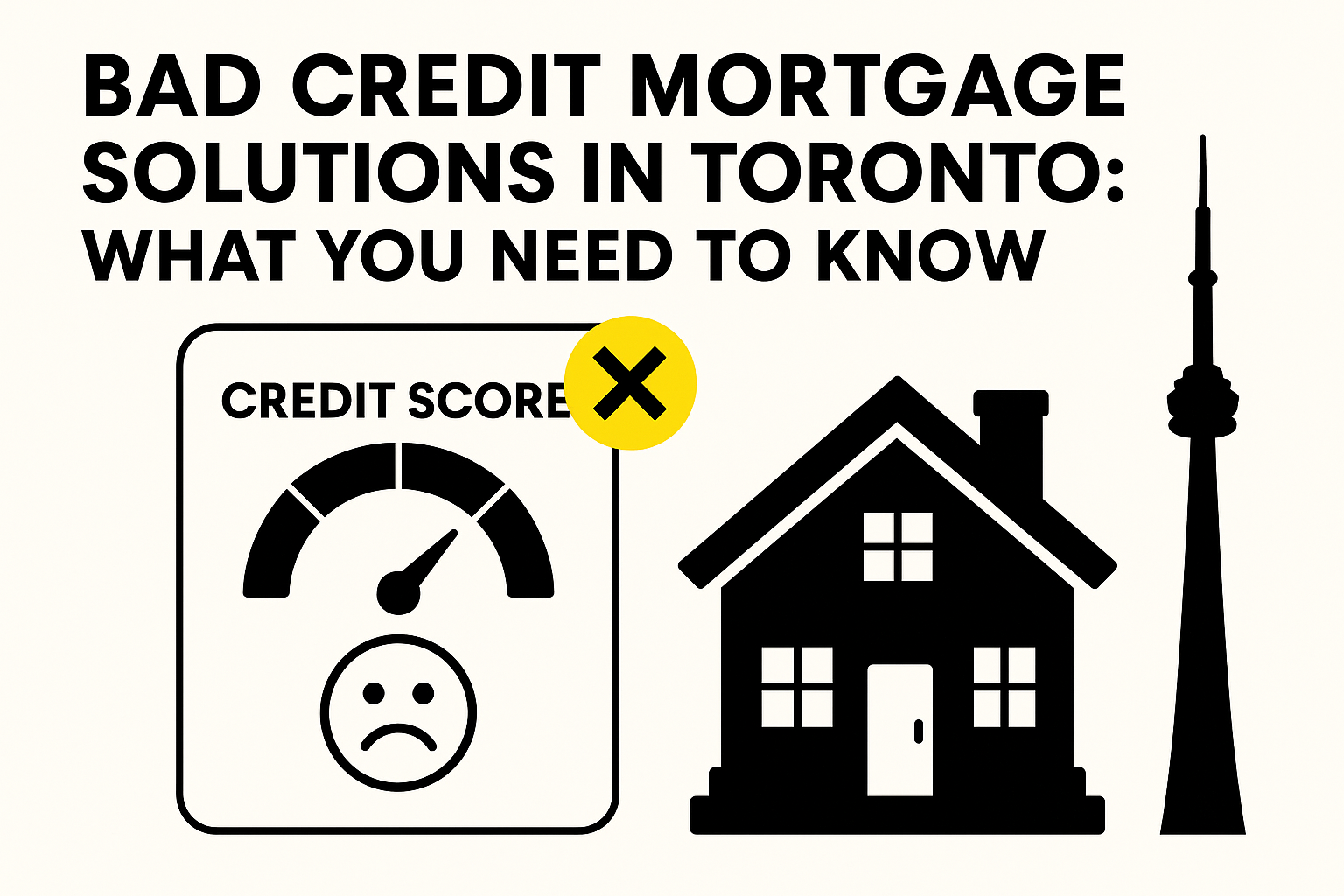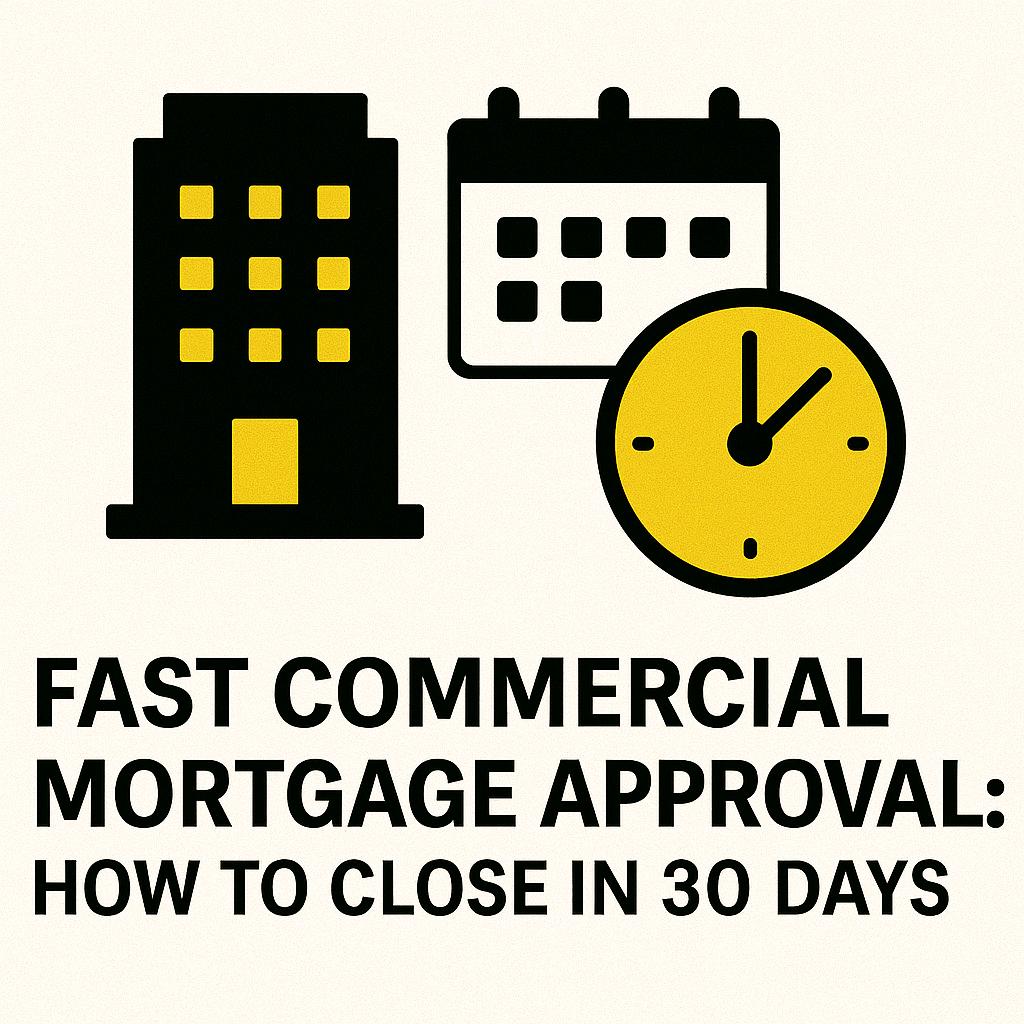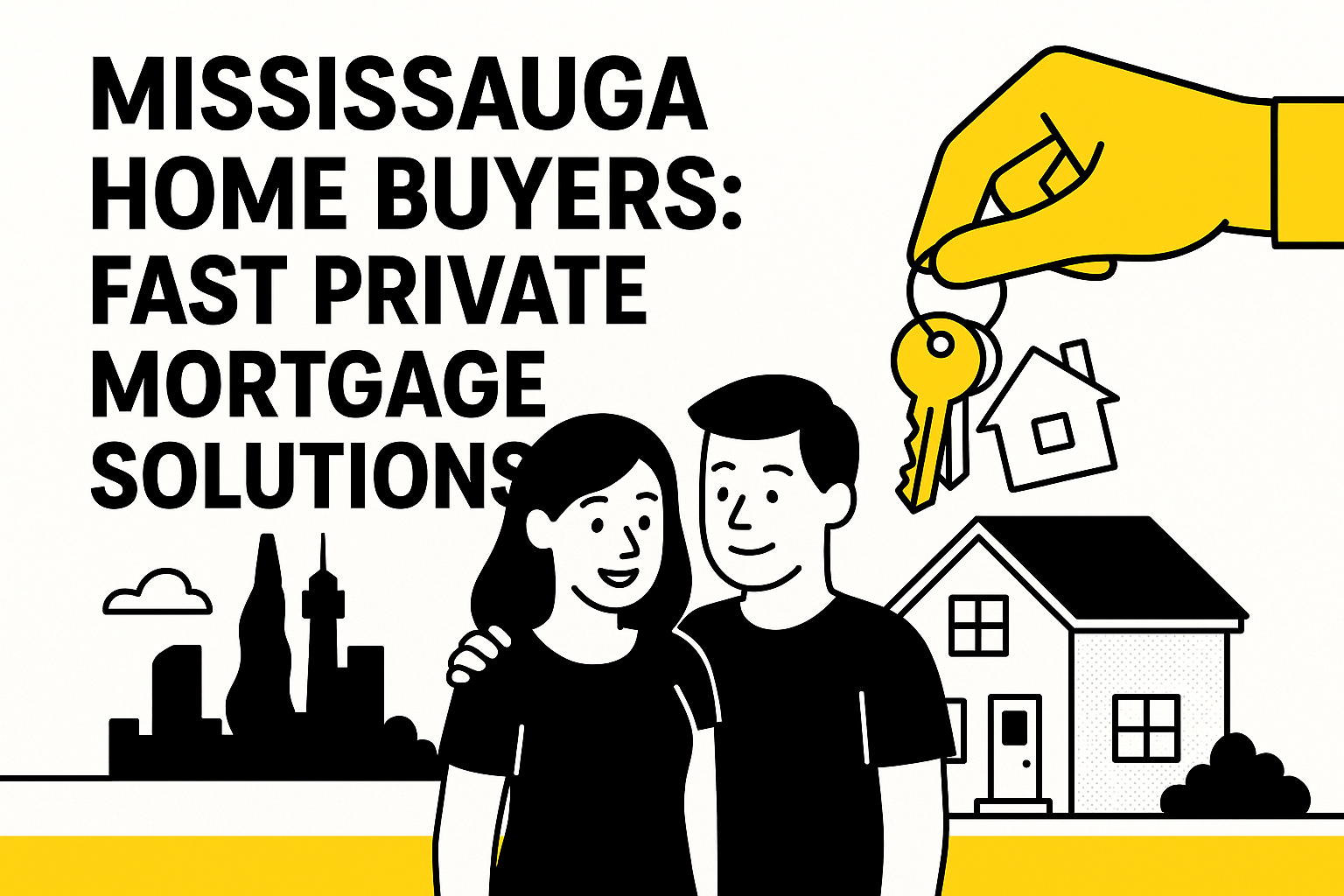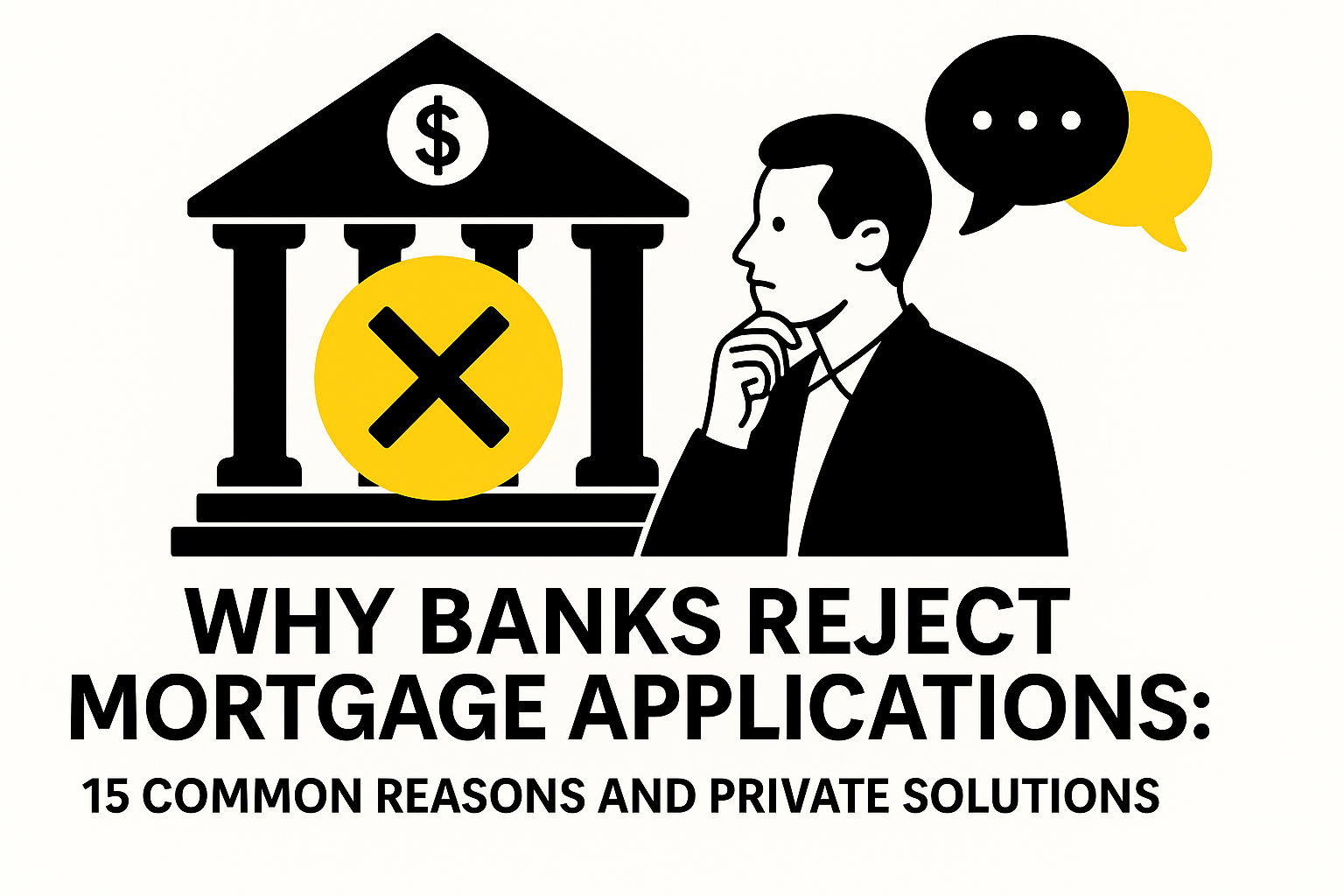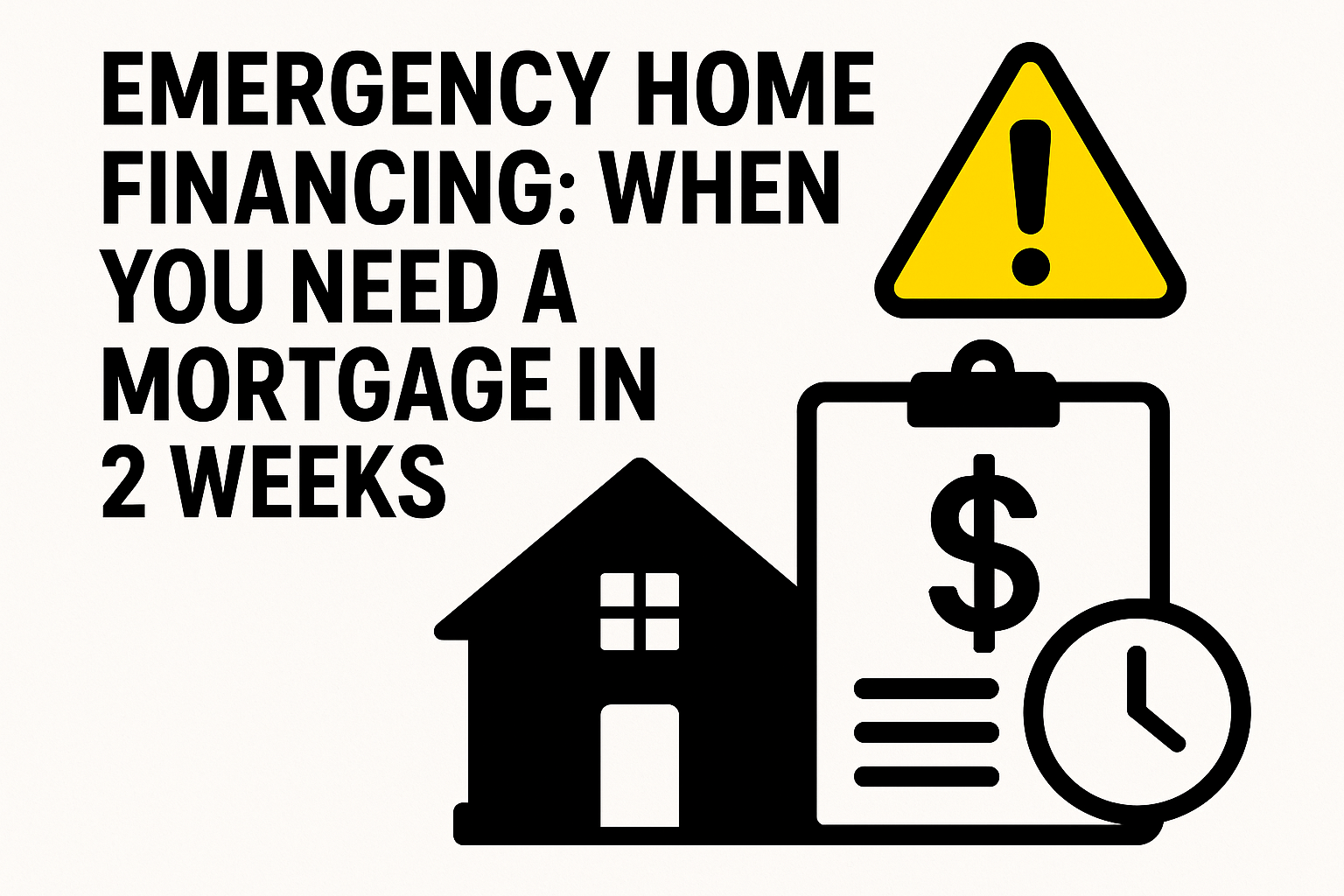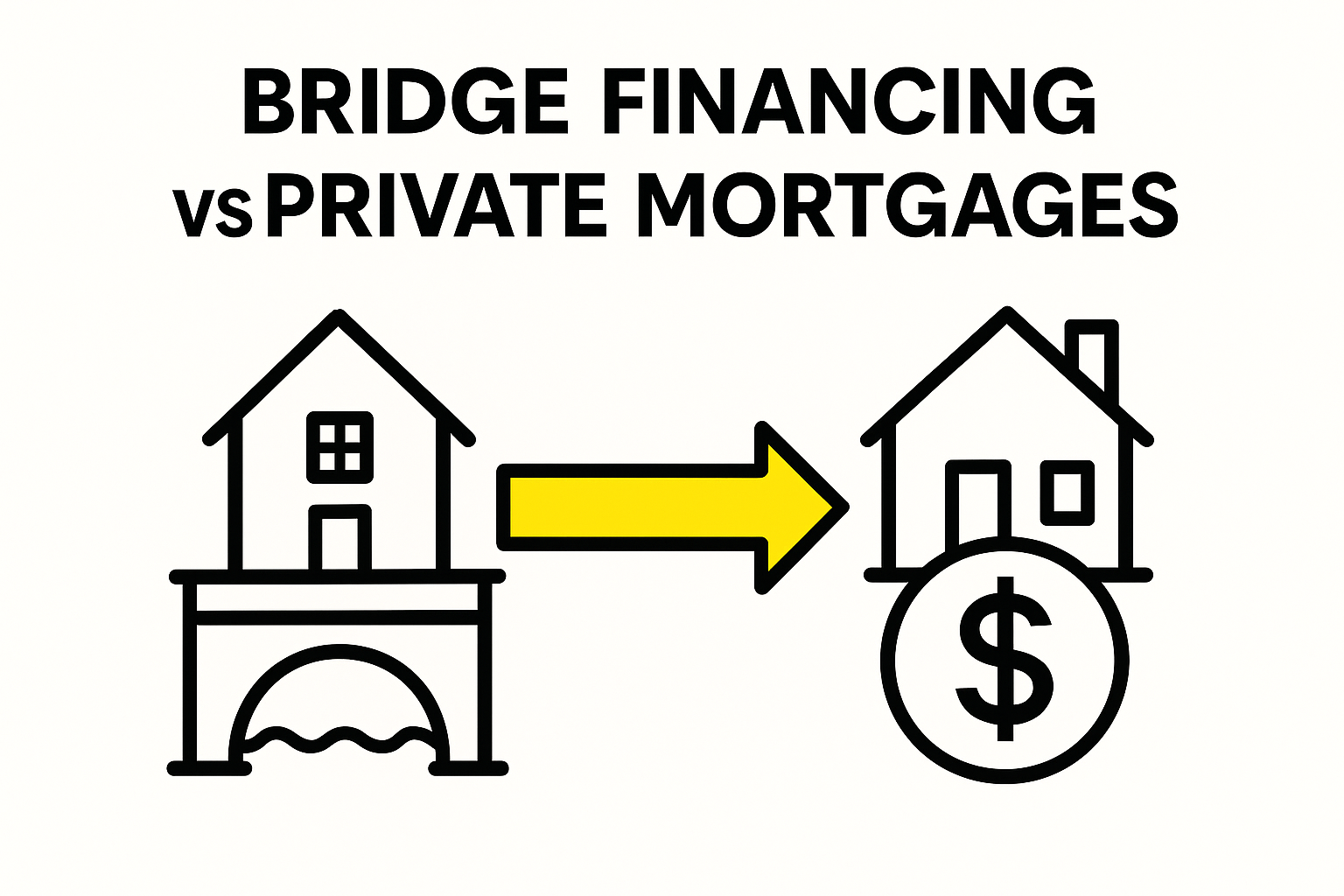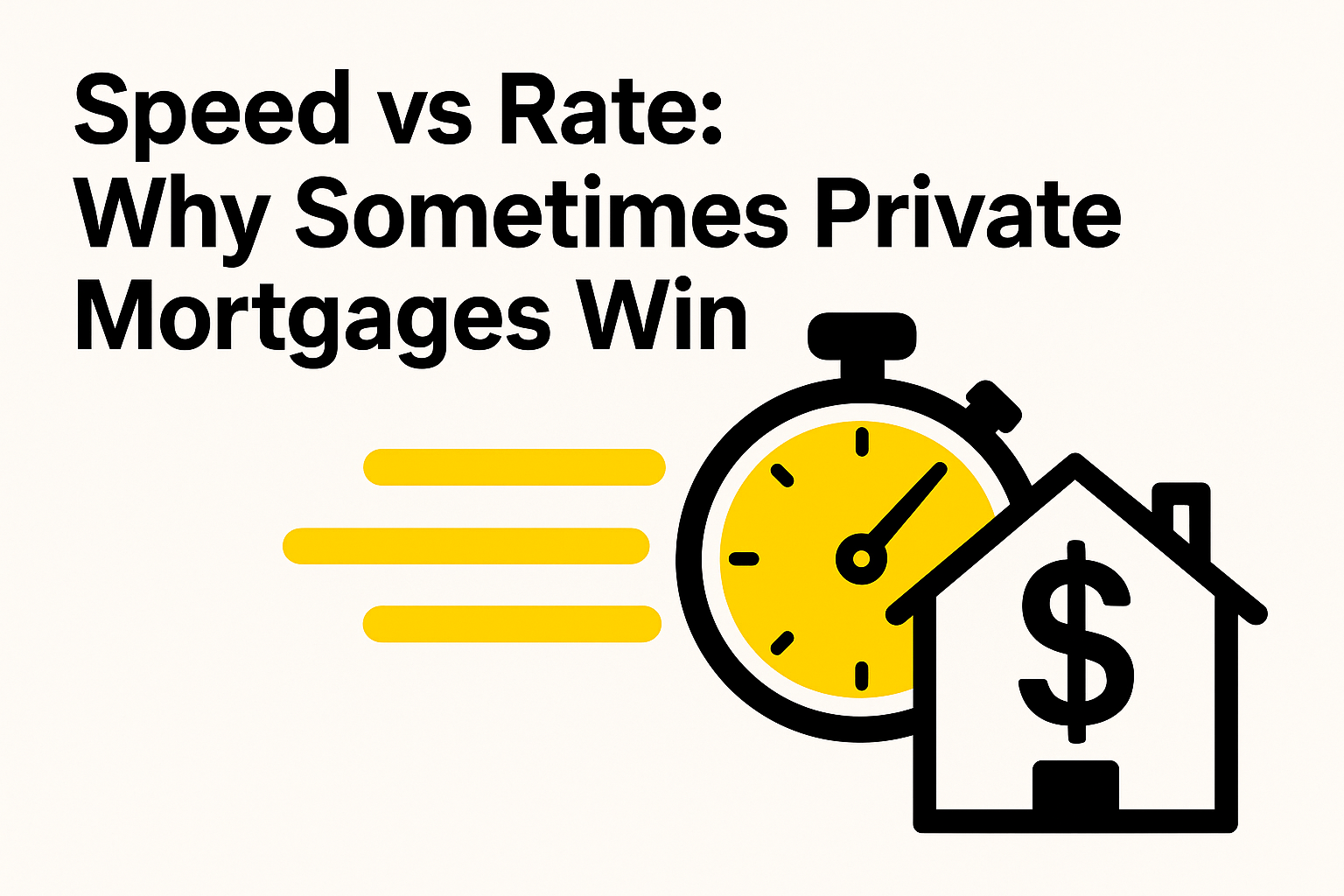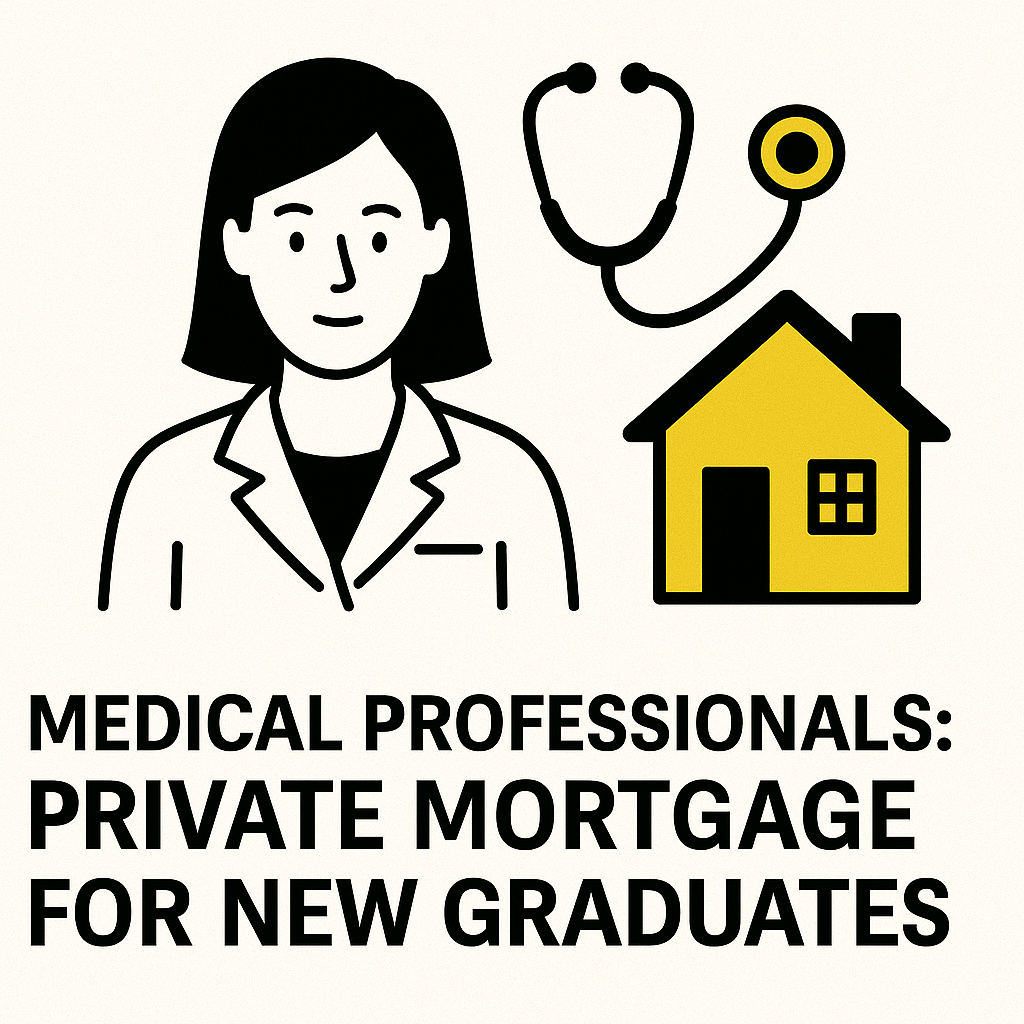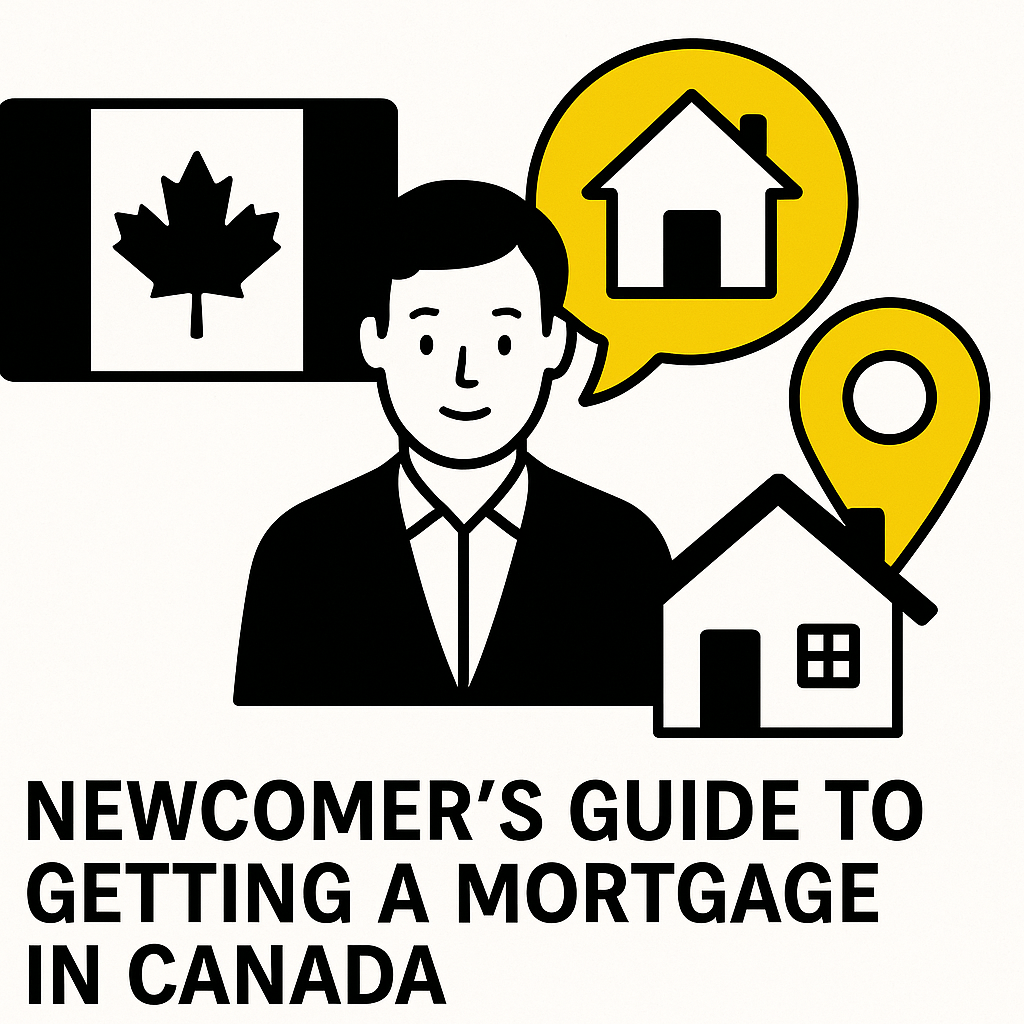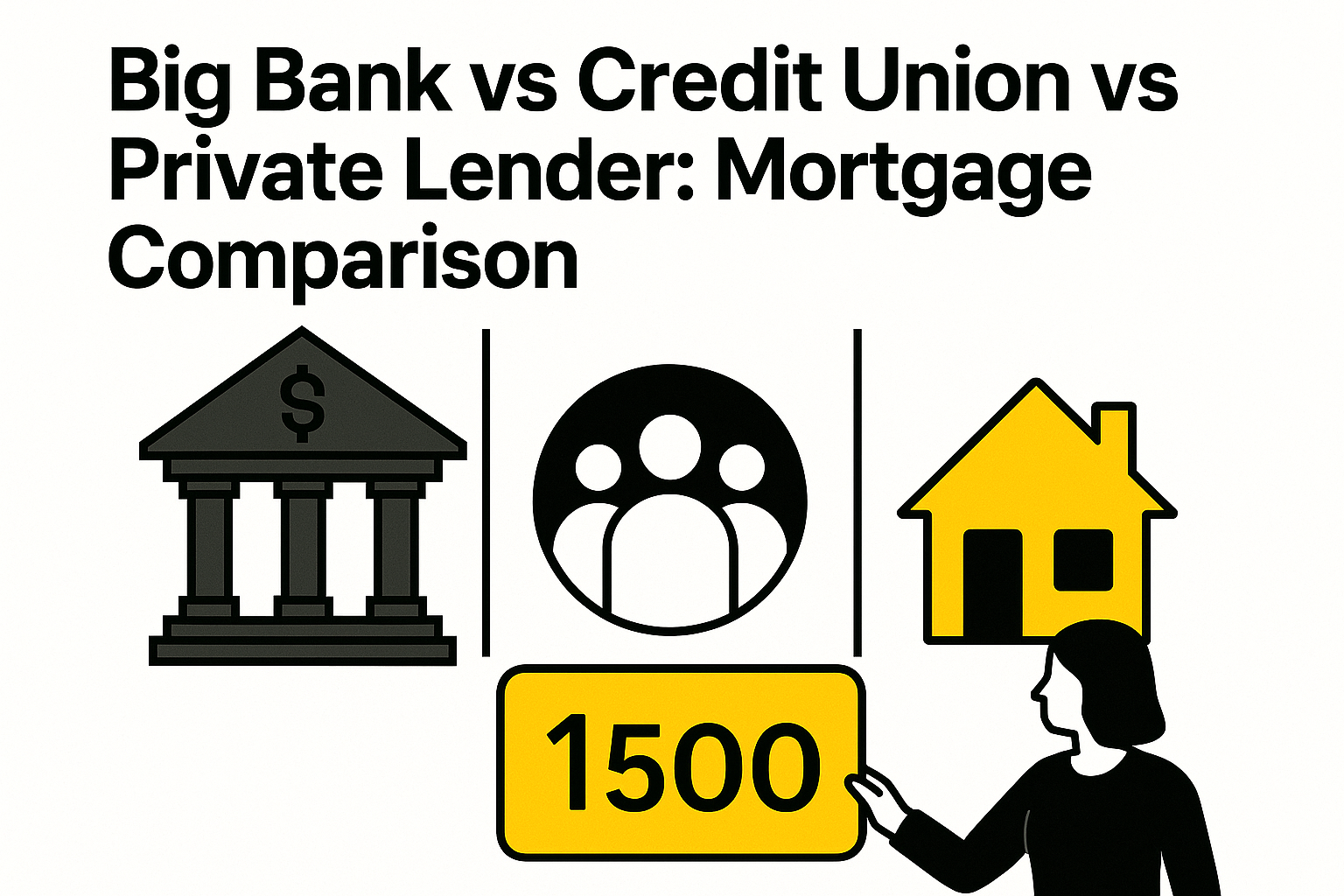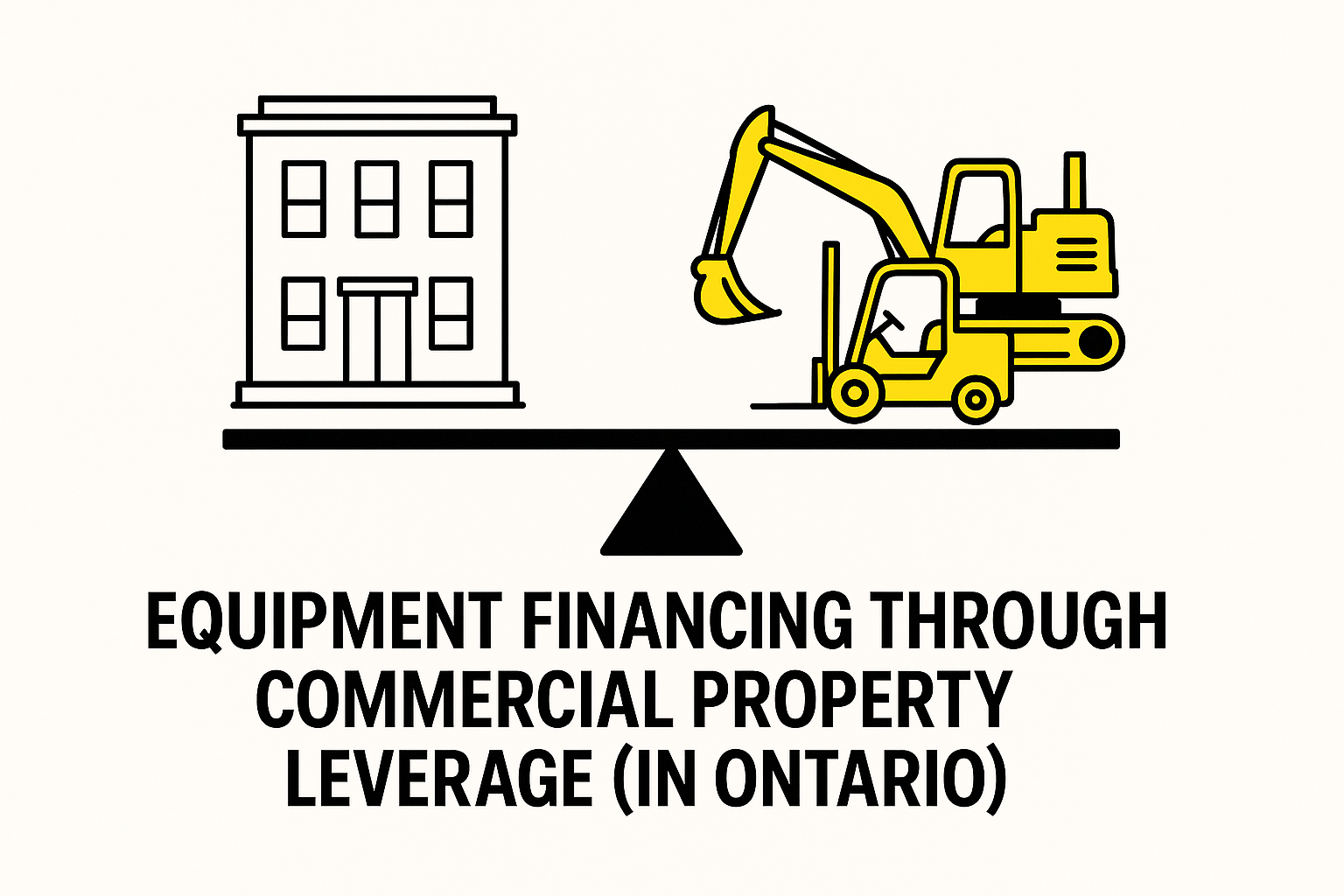Imagine Sandra Martinez staring at her credit report in frustration – a 580 credit score that told the story of a messy divorce, medical bills, and a business bankruptcy that happened three years ago. Despite earning $85,000 as a dental hygienist and having $60,000 saved for a down payment, every bank in Toronto had rejected her mortgage application within minutes of running her credit check. Fast forward six months, and Sandra could be hosting her housewarming party in her beautiful Scarborough townhouse, financed through a private mortgage that focused on her current income and stability rather than past financial mistakes that no longer defined her situation.
Bad credit doesn’t mean bad person, but try explaining that to traditional mortgage underwriters who see credit scores as the ultimate measure of lending risk. Toronto’s housing market moves too fast for people rebuilding their financial lives to wait years for credit repair, especially when they have stable income, substantial down payments, and genuine commitment to homeownership. Private mortgage solutions fill this critical gap by evaluating the complete financial picture rather than relying solely on credit bureau algorithms that can’t distinguish between temporary setbacks and fundamental character flaws.
Understanding Bad Credit in Toronto’s Mortgage Market
What Actually Constitutes “Bad Credit” for Mortgages
Most traditional lenders consider credit scores below 650 as problematic for mortgage approval, while scores below 600 often result in automatic rejection regardless of other qualifications.
The reality is more nuanced – a 580 credit score caused by medical bills differs significantly from a 580 score due to chronic payment avoidance patterns.
Recent credit events matter more than old ones. A bankruptcy from five years ago with perfect payment history since carries less weight than recent missed payments on current accounts.
How Toronto Banks Actually Evaluate Credit Applications
Major Canadian banks use automated underwriting systems that filter applications before human review, meaning many qualified borrowers never get past the initial credit score screening.
TD Bank, RBC, and Scotia all use similar FICO score thresholds, typically requiring 650+ for conventional mortgages and 680+ for competitive rates.
The automated systems can’t evaluate context like job stability, down payment source, or genuine commitment to payment – they simply see numbers and algorithms.
Common Causes of Credit Problems in the GTA
Divorce represents the most common cause of credit damage I see, as legal fees, duplicate housing costs, and emotional financial decisions create temporary chaos in otherwise stable lives.
Medical emergencies and extended illness can destroy credit scores when people choose between paying rent and paying credit cards during health crises.
Business failures, especially during COVID, affected thousands of entrepreneurial Toronto residents who took personal responsibility for business debts during unprecedented economic disruption.
Immigration-related credit gaps also affect many GTA residents, as newcomers often lack sufficient Canadian credit history despite strong international financial backgrounds.
Private Mortgage Solutions for Poor Credit
How Private Lenders Evaluate Bad Credit Applications
Private mortgage lenders focus on current ability to pay rather than past payment history, evaluating income stability, down payment size, and property value as primary factors.
A private lender might approve someone with a 550 credit score if they have 25% down payment, stable employment, and reasonable explanation for credit problems.
The evaluation process includes personal interviews and detailed review of circumstances rather than algorithmic decision-making that traditional banks rely upon.
Interest Rate Reality for Bad Credit Mortgages
Private mortgage rates for bad credit typically range from 7-15% annually, compared to 5-7% for A-lender mortgages with excellent credit.
The rate premium reflects increased risk, but many borrowers use private mortgages as bridges to rebuild credit and qualify for traditional financing within 12-24 months.
Key factors affecting private mortgage rates include:
- Credit score level and recent payment history
- Down payment percentage and source verification
- Employment stability and income documentation
- Property type, location, and loan-to-value ratio
Terms and Conditions for Bad Credit Private Mortgages
Most private mortgages for bad credit borrowers offer 1-3 year terms rather than traditional 5-year terms, allowing for refinancing once credit improves.
Prepayment penalties are typically limited to 3-6 months interest, making it easier to refinance when qualifying for better rates.
Some private lenders offer graduated rate structures where interest rates decrease after 12-18 months of perfect payment history.
Alternative Mortgage Products in Toronto
B-Lender Mortgage Options
B-lenders like Home Trust, Equitable Bank, and First National serve borrowers who don’t qualify for prime lending but have better qualifications than private mortgage candidates.
These lenders typically accept credit scores from 580-650 with compensating factors like larger down payments or strong income documentation.
B-lender rates currently range from 6-9% annually, providing a middle ground between prime and private mortgage costs.
Stated Income Mortgage Programs
Self-employed borrowers with credit challenges can access stated income programs that verify income through bank statements rather than tax returns or employment letters.
These programs work well for contractors, real estate agents, and small business owners whose tax returns don’t reflect true earning capacity.
Mortgage Professionals Canada data shows stated income mortgages represent 15-20% of all private mortgage originations in the GTA.
Joint Mortgage Applications
Adding a co-signer with strong credit can help bad credit borrowers qualify for traditional mortgages at better rates than private mortgage alternatives.
Family members or trusted friends with excellent credit can co-sign mortgages, though they become legally responsible for payments if the primary borrower defaults.
Joint applications require careful legal documentation and clear understanding of responsibilities and exit strategies.
Credit Repair Strategies While Securing Housing
Improving Credit Scores During Private Mortgage Terms
Perfect payment history on a private mortgage demonstrates creditworthiness to future traditional lenders, often improving credit scores by 50-100 points within 18 months.
Paying down credit cards to below 30% utilization while maintaining private mortgage payments shows improved financial management to credit bureaus.
Strategic credit repair during private mortgage terms includes disputing inaccurate information, settling old collection accounts, and establishing positive payment patterns.
Timeline Expectations for Credit Recovery
Most borrowers can improve credit scores sufficiently for B-lender qualification within 12-18 months of consistent financial management.
Traditional bank qualification often requires 24-36 months of perfect payment history and credit score improvement to 650+ range.
The key is viewing private mortgages as bridges to better financing rather than permanent solutions, with clear improvement plans and timelines.
Working with Credit Counselors
Non-profit credit counseling services in Toronto provide free consultation and debt management plans that can accelerate credit repair timelines.
Professional credit repair companies can help dispute errors and negotiate settlements, though borrowers should verify credentials and avoid upfront fee arrangements.
The most effective credit repair happens through consistent positive financial behavior rather than quick-fix solutions or credit repair scams.
Down Payment Strategies for Bad Credit Mortgages
Minimum Down Payment Requirements
Private lenders typically require 20-35% down payment for bad credit mortgages, with higher down payments often offsetting credit score deficiencies.
The substantial down payment requirement protects lenders against potential default losses while demonstrating borrower commitment to homeownership.
Gift funds from family members are generally acceptable for down payments, though source documentation and gift letter requirements apply.
Alternative Down Payment Sources
Borrowers can use RRSP withdrawals through the Home Buyers’ Plan, though this strategy works better for traditional mortgages than private lending situations.
Some private lenders accept alternative assets like stocks, bonds, or other real estate as down payment sources through pledged asset arrangements.
Business owners sometimes use business assets or accounts receivable as collateral for down payment funds, though this requires specialized lender approval.
Vendor Take-Back Mortgages
Motivated sellers sometimes provide vendor financing for buyers who can’t qualify for traditional mortgages, especially in slower market conditions.
These arrangements typically involve higher purchase prices to compensate sellers for financing risk and delayed payment schedules.
Legal documentation for vendor take-back mortgages requires specialized real estate lawyers familiar with private mortgage structures and foreclosure procedures.
Toronto Market Considerations for Bad Credit Buyers
Neighborhood Strategies for Bad Credit Mortgages
Private lenders prefer properties in stable neighborhoods with consistent resale values, making some Toronto areas more accessible for bad credit borrowers than others.
Scarborough, Etobicoke, and North York often provide better private mortgage approval rates than trendy downtown neighborhoods with volatile pricing.
Condo financing can be more challenging for bad credit borrowers, as private lenders often prefer freehold properties with more stable collateral values.
Market Timing and Bad Credit Mortgages
Slower real estate markets provide more negotiating power for buyers using private financing, as sellers become more motivated to accept alternative financing arrangements.
Rising interest rate environments can actually benefit bad credit borrowers, as the spread between prime and private mortgage rates narrows during these periods.
Multiple offer situations rarely favor buyers using private financing, making market timing crucial for successful home purchases with alternative lending.
Property Types and Private Lender Preferences
Single-family homes and townhouses receive more favorable private mortgage terms than condos or co-ops due to stronger collateral values and marketability.
Properties requiring immediate repairs or renovations can complicate private mortgage approval, as lenders prefer move-in ready homes for bad credit borrowers.
Investment properties face additional scrutiny from private lenders, with owner-occupied homes receiving preferential rates and terms.
Bad Credit Mortgage Costs and Fees
| Mortgage Type | Credit Score Range | Interest Rate | Typical Fees | Term Length |
| A-Lender (Prime) | 680+ | 5.5-7% | $300-800 | 5 years |
| B-Lender (Alt-A) | 580-679 | 6-9% | $1,000-2,500 | 3-5 years |
| Private Mortgage | 500-650 | 7-12% | $2,000-5,000 | 1-3 years |
| Hard Money | Any score | 10-18% | $3,000-8,000 | 6-24 months |
| Vendor Take-Back | Any score | 6-10% | $1,500-3,000 | 1-5 years |
| Family Financing | Any score | 4-8% | $500-1,500 | Flexible |
Note: Rates and fees vary based on individual circumstances, down payment size, and current market conditions.
Documentation Requirements for Bad Credit Mortgages
Income Verification for Poor Credit Borrowers
Private lenders require more comprehensive income documentation for bad credit borrowers, including employment letters, pay stubs, and bank statements showing consistent deposits.
Self-employed borrowers need business bank statements, accountant-prepared financial statements, and sometimes tax returns depending on credit score levels.
Recent job changes require explanation letters and probationary period documentation to satisfy private lender employment stability requirements.
Asset Documentation and Source of Funds
Down payment funds require clear source documentation, including bank statements showing accumulation over time or gift letters from family members.
Private lenders scrutinize large deposits or transfers, requiring explanations for any unusual financial activity within 90 days of mortgage application.
Asset verification includes confirmation of savings accounts, investment portfolios, and other financial resources that demonstrate borrower stability.
Credit Report Analysis and Explanations
Borrowers should obtain credit reports from both Equifax and TransUnion before applying, as private lenders review both reports for comprehensive credit analysis.
Written explanations for negative credit events help private lenders understand circumstances behind credit problems and evaluate future payment likelihood.
Recent credit inquiries require explanation, as multiple mortgage applications can signal desperation or shopping behavior that concerns lenders.
Legal and Regulatory Considerations
Consumer Protection in Private Mortgage Lending
Ontario’s Mortgage Brokerages Act provides consumer protection for private mortgage borrowers, requiring licensed mortgage agents and standardized disclosure documents.
Private mortgage contracts must clearly outline interest rates, fees, payment terms, and default procedures to comply with provincial lending regulations.
Borrowers have legal rights to independent legal review and cooling-off periods for private mortgage agreements, protecting against predatory lending practices.
Understanding Mortgage Default Procedures
Private mortgage default procedures typically allow shorter cure periods than traditional mortgages, often requiring payment within 15-30 days of missed payment notices.
Foreclosure timelines for private mortgages can be faster than traditional bank foreclosures, making consistent payment history crucial for maintaining homeownership.
Legal representation during private mortgage negotiations helps protect borrower interests and ensures compliance with all regulatory requirements.
Working with Regulated Mortgage Professionals
Licensed mortgage agents must disclose all fees, commissions, and potential conflicts of interest when arranging private mortgage financing for bad credit borrowers.
Professional mortgage brokers often have relationships with multiple private lenders, providing access to competitive rates and terms for qualified borrowers.
Regulatory oversight ensures mortgage professionals maintain required education, insurance, and ethical standards when serving vulnerable borrower populations.
Success Stories from Toronto Bad Credit Borrowers
Consider James Park’s situation – his construction business failed during COVID, leaving him with a 520 credit score and $45,000 in unsettled business debts. Despite earning $75,000 annually as an employed project manager, no bank would consider his mortgage application.
A private mortgage broker found a lender willing to finance 75% of a $650,000 Mississauga townhouse at 9.5% interest, focusing on his stable employment and 25% down payment.
Eighteen months later, James refinanced to a B-lender at 7.2% after demonstrating perfect payment history and settling his business debts through debt consolidation.
Credit Repair Success During Homeownership
Picture Maria Santos buying her first home with a 575 credit score using a private mortgage, then systematically improving her credit while building equity through property appreciation.
She paid down credit cards, disputed inaccurate information, and maintained perfect payment history on all accounts including her private mortgage.
After 24 months, her credit score improved to 680, allowing refinancing to a traditional mortgage at prime rates while saving $850 monthly in interest payments.
Common Mistakes That Delay Traditional Mortgage Qualification
The biggest mistake is not developing a clear credit improvement plan during the private mortgage term, missing opportunities to qualify for better financing sooner.
Critical mistakes that extend private mortgage dependency include: • Making late payments on the private mortgage or other accounts • Taking on additional debt during the credit repair period • Ignoring credit report errors or collection account settlements • Not maintaining sufficient income documentation for future applications • Closing old credit accounts that provide positive payment history
Another costly error is not working with mortgage professionals who understand the transition from private to traditional financing and can guide the improvement process.
Frequently Asked Questions
What credit score do I need for a private mortgage in Toronto? Most private lenders will consider borrowers with credit scores as low as 500, though rates and terms improve significantly with scores above 550. The key factors are stable income, substantial down payment, and reasonable explanation for credit problems.
How quickly can I get approved for a bad credit mortgage? Private mortgage approval typically takes 5-14 days compared to 30-60 days for traditional mortgages. The faster timeline helps bad credit borrowers compete in Toronto’s competitive housing market.
Can I refinance to a better rate once my credit improves? Yes, most private mortgages include refinancing options without prepayment penalties after 12-18 months. Many borrowers successfully transition to B-lenders or traditional banks within 24 months of consistent payments.
What down payment do I need with bad credit? Private lenders typically require 20-35% down payment for bad credit mortgages. Higher down payments often compensate for lower credit scores and can result in better interest rates.
Are there government programs for bad credit home buyers? While most government programs require good credit, some first-time buyer incentives can be combined with private mortgages. However, private lending typically offers more flexibility than government programs.
Should I wait to repair my credit before buying a home? This depends on your situation. If you have stable income and down payment savings, private mortgage solutions allow homeownership while building credit through mortgage payments. Waiting might mean missing market opportunities or paying rising rents.
Conclusion
Bad credit doesn’t have to derail homeownership dreams in Toronto’s competitive real estate market, as private mortgage solutions provide viable paths to property ownership for borrowers who demonstrate current financial stability despite past credit challenges. The key is understanding that private mortgages serve as bridges to traditional financing rather than permanent solutions, requiring strategic planning and disciplined financial management to transition to better rates and terms. Smart borrowers use private mortgage periods to rebuild credit, establish payment history, and position themselves for conventional mortgage qualification within reasonable timeframes.
Toronto’s diverse mortgage marketplace offers options for nearly every credit situation, from B-lender alternatives to specialized private mortgage programs that evaluate the complete borrower profile rather than relying solely on credit scores. Working with experienced mortgage professionals who understand both private lending and credit improvement strategies helps borrowers navigate the transition from financial setbacks to homeownership success. For qualified borrowers with poor credit, the combination of stable income, substantial down payments, and commitment to financial recovery creates opportunities that traditional lending simply cannot accommodate through algorithmic underwriting systems.
Ready to explore bad credit mortgage solutions in Toronto? Contact HERCULES Team Investment Group today to discuss private mortgage options designed specifically for borrowers rebuilding their credit. Our specialized knowledge of Toronto’s alternative lending market and established private lender network can help you secure homeownership while working toward traditional mortgage qualification.

